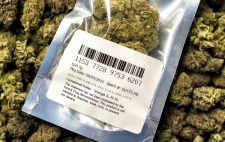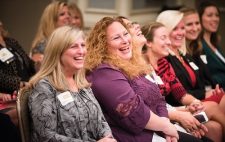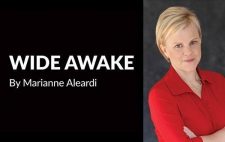The first time I voted for president, I was 6. My father held me up inside the booth, and I got to flip the lever, the lever that would make Adlai Stevenson the leader of the free world.
We had walked to the polls together, my father and me, waving at neighbors, watching women in housedresses pushing little American flags in what was left of their rose gardens.
The voting place was a double garage at the end of our block, a garage that smelled like old cigarette butts and towels left wet too long. And one by one they came. Neighbors, strangers, men with tin lunch pails, women with pink plastic curlers.
My father, who had a blue-collar job, put on a tie that morning, his best navy-blue tie, the one he saved for bar mitzvahs and weddings. This was a special day for my father, a day he took with gravity, a day he took with gusto.
And this day, this damp and drippy first Tuesday after the first Monday in November, signaled the beginning of my career as a political operative.
In fourth grade, I ran the election campaign of Freddie Finkelstein, the boy who would become the president of our class.
“We need to put up posters,” Freddie said.
“The other kids are putting up posters,” I told him. “We need to be like the politicians. We need to make promises. Free lunches for everyone. Longer summer vacations. And prettier teachers.”
He looked at me like I was crazy. “We can’t do any of those things,” he said.
“They know that,” I said, “but they’ll like you just for trying.” And so they did. Freddie Finkelstein, man of the people, was easily elected. And I became the power behind the throne.
I would go on to help others win even more elections — citywide elections in Philadelphia. The secret sauce? Get out the vote. Even if you have to drive them to the polls yourself. I learned that from my father.
On election day, my father would knock on doors. If people couldn’t walk to the polls, he would drive them himself.
Mrs. Millstein was a widow who lived two doors down. She wore her hair in a big gray bun. She had very thick glasses and could barely see. She was an old lady. You know, 60.
“I’m eating my breakfast,” she would tell my father. “Do you want a soft-boiled egg and some toast?”
“No, Mrs. Millstein,” my father said. “This is more important than soft-boiled eggs. I want to drive you to the polls. It’s Election Day.”
“Drive?” she said. “No, no, no. I don’t like driving in those big machines. I think I’ll walk down.” She grabbed her cane, my father put her arm on his and, together, they walked down the driveway. It took my father almost a half hour to get her to the end of the block. But they got there, and she voted.
“Why do you work so hard?” I asked him.
“Because,” he said, “I was born in a country where people didn’t have the right to vote. Or to have elections. My part of Poland was taken over by the Russians. You don’t vote for tzars, son. Tzar Nicholas told us what we could and couldn’t do. We couldn’t worship. We couldn’t have Polish or Hebrew signs on our stores. We had to do what we were told.”
“That’s why my parents came to this country. They wanted to be free. Free to pray, free to live and free to vote.”
In my house, the right to vote was sacred. My father voted in every election, no matter how big, no matter how small. I learned that from him. You might not like the choices, but you can’t forfeit your right. Too many people died to protect it.
Vote like your life and your freedom depend on it. My father did.














